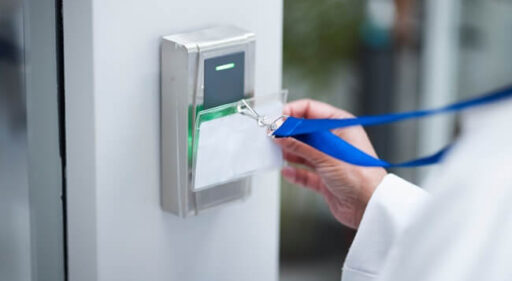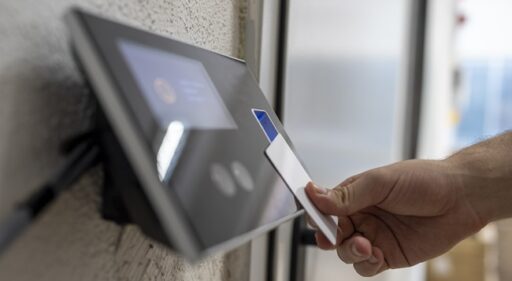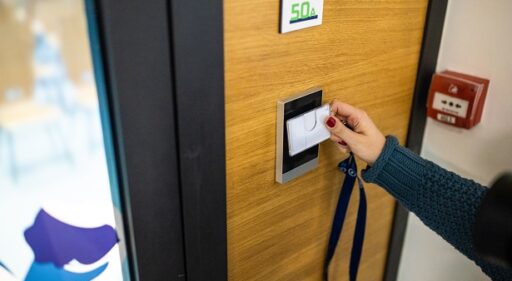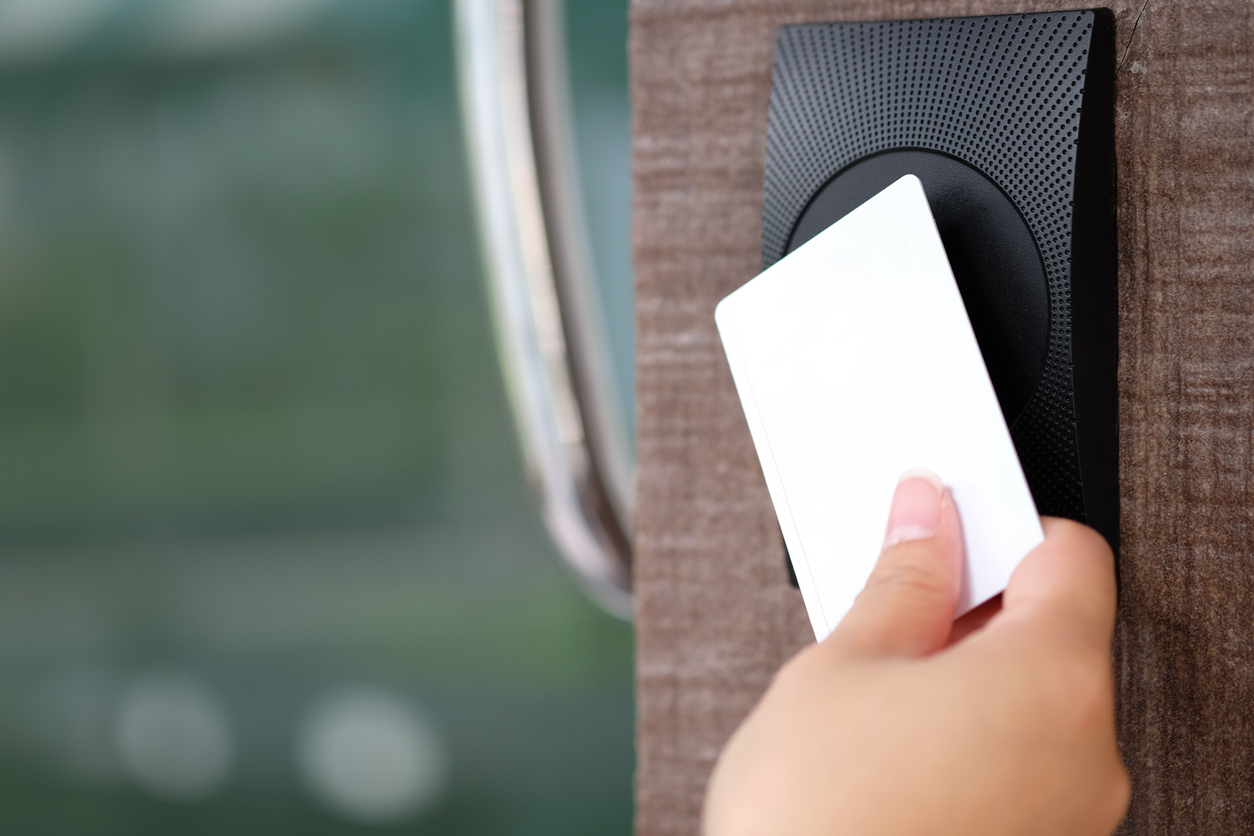
Access control systems, should they be stand-alone or fully integrated solutions, are designed to grant entry or prohibit unauthorized access to secure facilities, business premises, and private residential buildings.
Today, there are many types of access control systems. They combine one or two identification protocols and use different identification procedures, including but not limited to Smart Card Identification, Biometric Identification, Mobile Access Identification, and Proximity Identification.
Types of Access Control Systems and Management Models
Advances in access control technology have moved well beyond the traditional lock and key method. Today, most establishments use secure systems such as barcode cards, magnetic strip key cards, and radio frequency identification (RFID) cards. Of course, how safe each of them is depends on what’s on the other side of the door. However, each of these cards is computer automated with a unique electronic signature that only responds to specific key card readers.
Commonly Used Management Models
If your primary concern is personnel identification, authentication, and entry authorization, here is an overview of the three most commonly used access control permission or management models;
- Mandatory Access Control (MAC) is the most restrictive type of access control where users are provided with classified labels that give them access under strict security guidelines.
- Discretionary Access Control (DAC) gives business owners complete control over their system. Therefore, they decide who to grant access to which areas of the premises, data, or resources.
- Role-Based Access Control (RBAC) allows or restricts access to sensitive information or rooms based on specific roles and employee responsibilities within an organization.
Security Issues That Access Control Systems Face
Access control security systems play a pivotal role in ensuring the security of your business as they keep unauthorized individuals out. However, like every system, some access control systems can also be susceptible to security breaches because not all systems are created equal.
Consider the following access system challenges as examples;
- Access cards might get lost and fall into the wrong hands
- Some access control systems can have a problem integrating with a property’s existing systems
- Security technology is susceptible to hackers who spend sleepless nights devising new ways of bypassing secure protocols
- Updating an entire (outdated) control system can be an expensive and time-consuming task
What Makes Access Control Systems Reliable?
An integrated Access Control System will protect a home or company assets by ensuring the safety of all access points of a property. Because such a system provides access to and supports multiple users, it needs to have a few defense mechanisms. For example, if you are considering having an access control system installed on your premises, consider one that offers the following features;
- An access control unit allows multiple entrances to a facility. Therefore, it must have a reliable reporting and audit trail to keep a log of all the movements throughout the building.
- Every card has a unique identifier that allows you to set customized user access rights or privileges. In case of a safety breach, you can pinpoint exactly who did what and the origin of the breach.
- An access control system can be integrated with intrusion alarm systems and live video to allow effective monitoring from a centralized user interface for an added layer of safety.
- Whichever access software package you choose, it should have the ability to schedule regular backups to mitigate data loss in the event of a system’s failure. Some businesses have switched to intuitive cloud-based access control, whose systems, installations, updates, and backups are streamlined.
- While a robust access control system should be effective at identifying breaches and raising alarms as soon as they are registered, it should also be user-friendly to grant fast access to the right individuals.
Contact us today if your home, office building, or private facilities require affordable software-managed locking systems that will provide safe, secure and access to your property.
